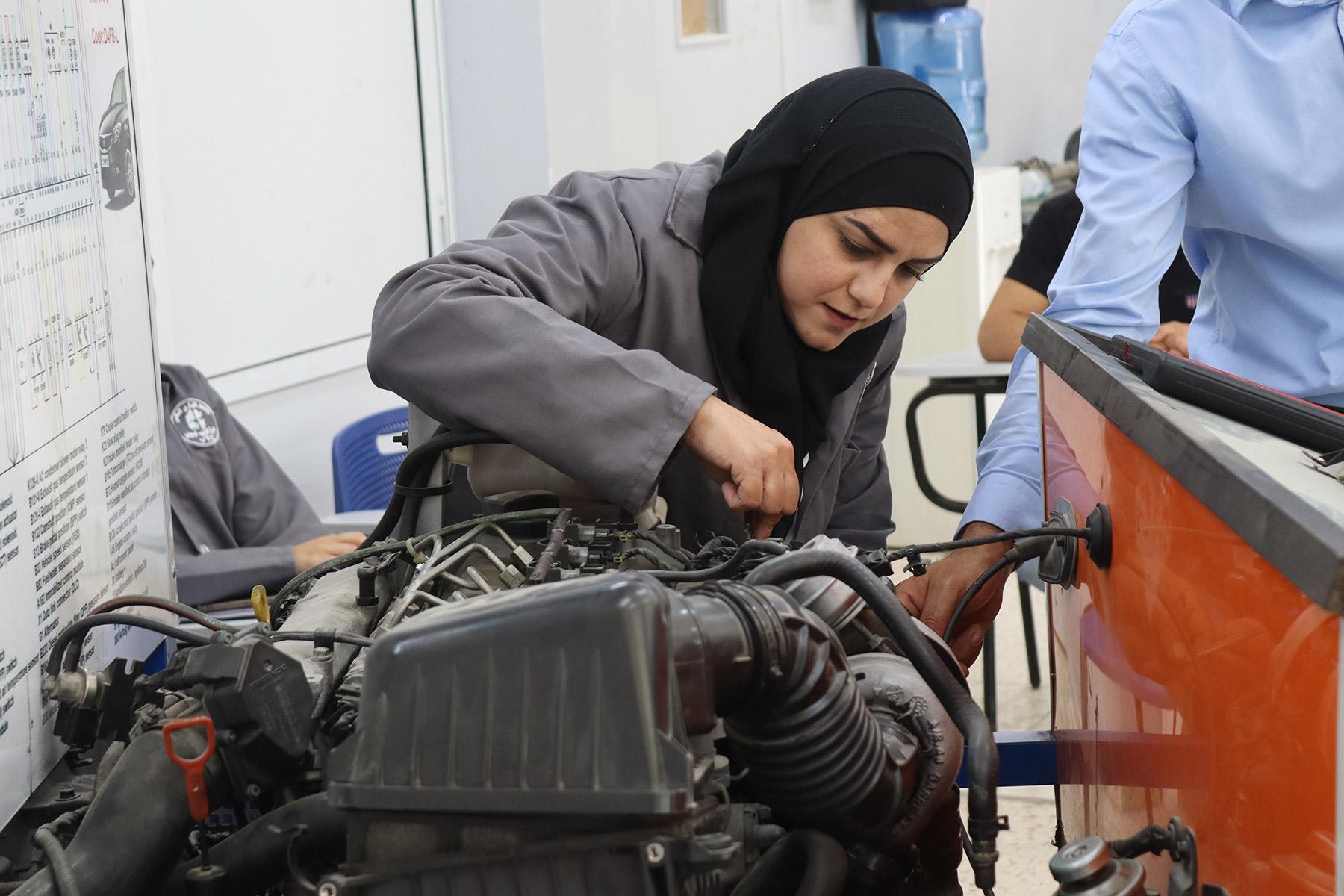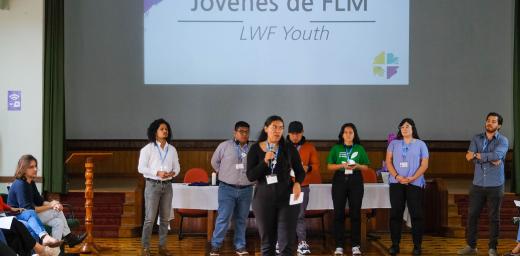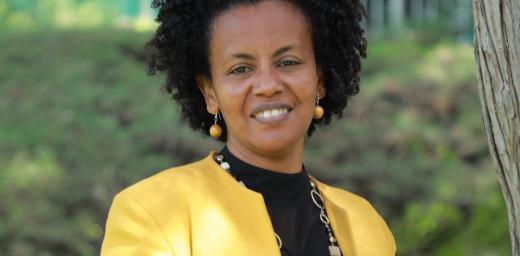Faith in Action: LWF and partners create pathways for women’s empowerment in Iraq, Jordan and Palestine
(LWI) - From poverty and discrimination to dignity and economic independence. Despite the multiple barriers facing women and girls across the Middle East when it comes to education and job opportunities, the Lutheran World Federation (LWF) is working with partners to provide innovative solutions that are tailored to the needs of the local communities.
At an online event during the 68th session of the UN’s Commission on the Status of Women in New York, LWF program coordinators in Iraq, Jerusalem and Jordan/Syria showcased some of the projects that are bringing down barriers and changing attitudes by investing in the resilience and creativity of women across the region. The event, entitled ‘Faith in Action: pathways to women’s economic independence’, was moderated by Heather Platt from Canadian Lutheran World Relief (CLWR), a key partner in supporting the LWF’s work for women’s empowerment in the Middle East.
LWF Country Director for Jordan and Syria, Ameera Khamees, began by outlining the “numerous stumbling blocks” towards the achievement of the Sustainable Development Goals in the region, including conflict and the ongoing effects of the COVID-19 pandemic. In particular, she noted, women are disproportionately affected by poverty and unemployment, with only 15 percent of women holding management positions and over half the female workforce unemployed after a year of job searching.
Poverty, unemployment, conflict
In Iraq, she continued, over a million people are still internally displaced from the war with ISIS and the country remains in the grip of “a protracted crisis, making it one of the most volatile places in the world.” In Syria, where over half a million people died in the civil war and thousands more were killed by the 2023 earthquake, “women are often the sole breadwinners, struggling with food prices that have increased by over 200 percent.”
In the Palestinian territories, the war in Gaza is exacerbating an already severe situation, where over half the workforce was unemployed and rising numbers of people were living below the poverty line. Palestinian women, Khamees said, are particularly affected by security restrictions which hamper their access to work, education and health services. After five months of war, she said, development and wellbeing indicators in Gaza have dramatically declined “and the situation is getting worse.”
Yet despite this bleak picture, the event highlighted numerous stories of women who have overcome discrimination and deeply entrenched patriarchal norms to pursue training, find jobs, achieve their dreams and gain economic independence. Helan Muhammed, Program Coordinator for LWF Iraq, explained how women face inequality in the home and in the workplace, with many earning less for the same work as men.
Stigma against survivors of sexual violence
Among the many barriers that Iraqi women face, Muhammed listed “lack of safe transportation, limited access to financial capital if they wish to start a business and lack of childcare, since women are expected to remain at home to look after the family.” Domestic violence is a major problem, she said, including “a strong cultural stigma against survivors of sexual violence, especially those who were victims of ISIS.”
Muhammed shared the story of a Syrian refugee woman who fled to Iraq and has started her own business making wood chips, thanks to a loan from a business development program called QUEST which offers employment opportunities for refugees, internally displaced people and members of host communities in the Duhok and Mosul regions of northern Iraq. LWF has also partnered with the International Labour Organization in the region to provide financial training and support that allows women to set up and grow small or medium sized enterprises.
A multi-stakeholder approach [is changing] attitudes towards women, including those with disabilities.
Suhad Kasbari, LWF project manager in Jerusalem for the GRIT program
Similarly, Suhad Kasbari, LWF project manager in Jerusalem for a program called GRIT, or Gender-Responsive Inclusive Technical and Vocational Education and Training, shared the example of a woman who has overcome opposition to train in carpentry, find an apprenticeship and is now flourishing in a job that was seen as exclusively ‘men’s work’. Kasbari said the GRIT program, which was launched in 2019 in partnership with CLWR and the Canadian government, uses “a multi-stakeholder approach to change attitudes towards women, including those with disabilities, through training, safe transport and employment opportunities.”
In Jordan, LWF program coordinator Islam Shdeifat spoke of the holistic approach adopted by an Integrated Livelihoods Project which focuses on training, advocacy and financial inclusion for women, as well as supporting survivors of sexual and gender-based violence. “We use a local to global advocacy approach,” she says, “working with communities and tailoring our program to the local needs.” As the panelists noted, these successful programs have created “a ripple effect,” serving as powerful role models to inspire and empower young women and girls throughout the region.






